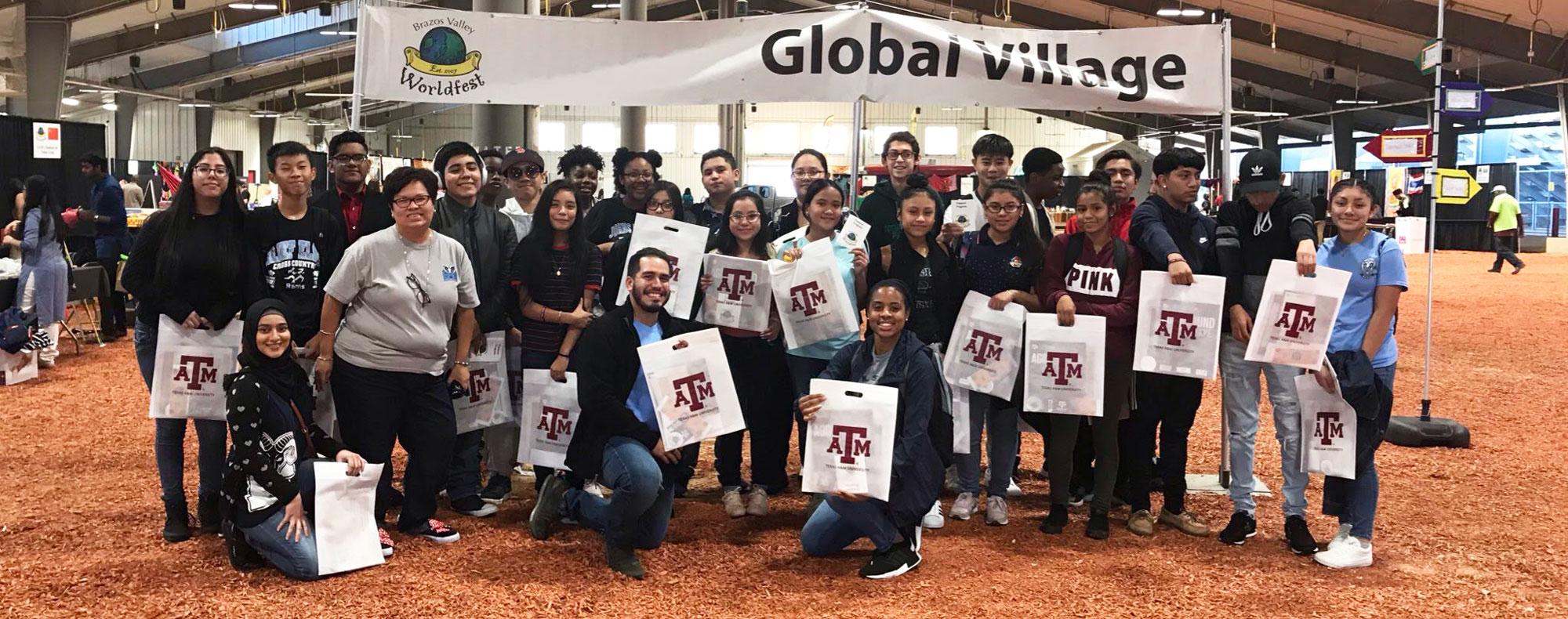
Learn. Teach. Solve world problems. Repeat.
Science teacher Krystle Dunn combines lifelong science learning and cross-disciplinary collaboration to train the next generation of problem solvers.
Author: Krystle Dunn

Science teacher Krystle Dunn combines lifelong science learning and cross-disciplinary collaboration to train the next generation of problem solvers.
Author: Krystle Dunn
I have always been interested in the phenomena of science and living things. I am intrigued by it all! So it’s perfect that everyday I get to walk into my lab and collaborate with a cross-disciplinary team on some of the world’s most pressing issues.
Recently, my team worked on solutions to global water insecurity. They blew me away with their innovative designs—from a solar-powered water disinfectant to a mechanism that harvests water from air.
Where is this amazing lab located? At Alief International Academy, a global, multilingual, college-prep high school in one of Houston’s most diverse areas—and these groundbreaking scientists are high school students!
Located minutes away from the International District, Alief ISD’s students speak over 80 languages and dialects. This cultural and linguistic diversity make my district and school a perfect space for insightful collaborations—with students, my teacher colleagues and greater the scientific community.
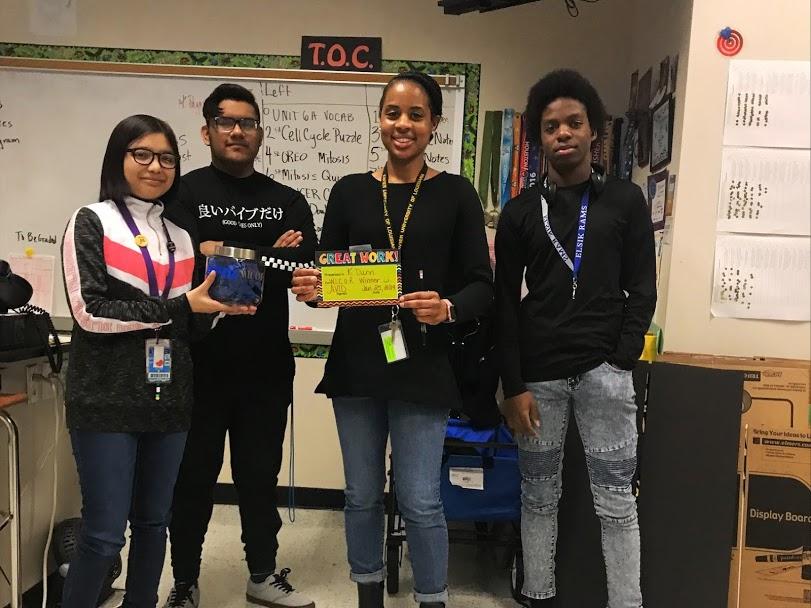
I’ve been a biology teacher for 7 years, but I have been an eager learner all my life.Thinking I would become a doctor, I attended Xavier University of Louisiana where I majored in biology and minored in chemistry. (Awesome fact: Xavier University is ranked #1 in the nation in awarding bachelor's degrees to African American students in the biological and biomedical sciences, the physical sciences, and physics!)
At Xavier, I was exposed to scientific research during a summer program hosted by Harvard Medical School and MIT that focused on bioinformatics and genomics. I spent several weeks working with physician scientists and attending lectures from experts in their field. At the time, the field very new to me and I was truly learning cutting edge information as it was being discovered.
This experience was important to choosing a career in education. As a high school student, I wasn’t aware of or exposed to the plethora of opportunities in science, so it became my passion to instill a love for science in students and inform them of the many options they have.
I was also hooked on the idea of becoming a lifelong learner. Through teaching, I would be able to combine my love for studying living organisms with my equal passion for serving others, while working in two of my favorite places—the classroom and lab.
Now as a teacher, I am a mentor and a facilitator of knowledge in my classroom. I even share my love for running with my students after school as a sponsor of our run club.
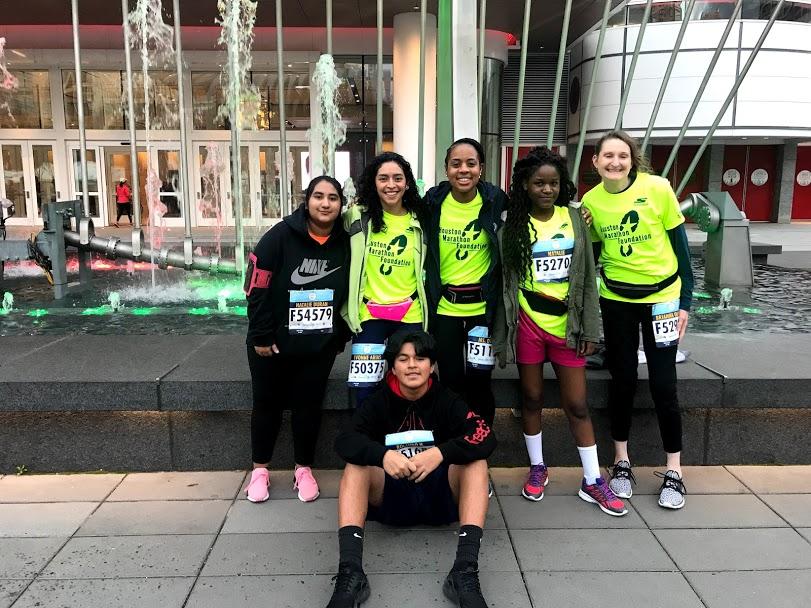
Teachers don’t just teach—we learn too. This past year, I had the chance to increase my STEM knowledge and focus in the classroom. As a participant in the Rice University Nano Environmental Engineering for Teachers (NEET) and the Nano Enabled Water Treatment (NEWT) Research Experience for Teachers (RET) programs, I discovered the importance of nanotechnology, especially in the treatment of water, and I learned about the global and local water crises.
Through these experiences, I learned about the engineering design process and this became focus of our school’s first semester project. Students were presented with current problems with water sustainability worldwide and locally. Then, they were challenged to engineer a solution for their chosen water issue.
My students’ projects included flood prevention using biochar, improving simple water filters, economic solar water disinfection, plants as water filters, and harvesting water from air.
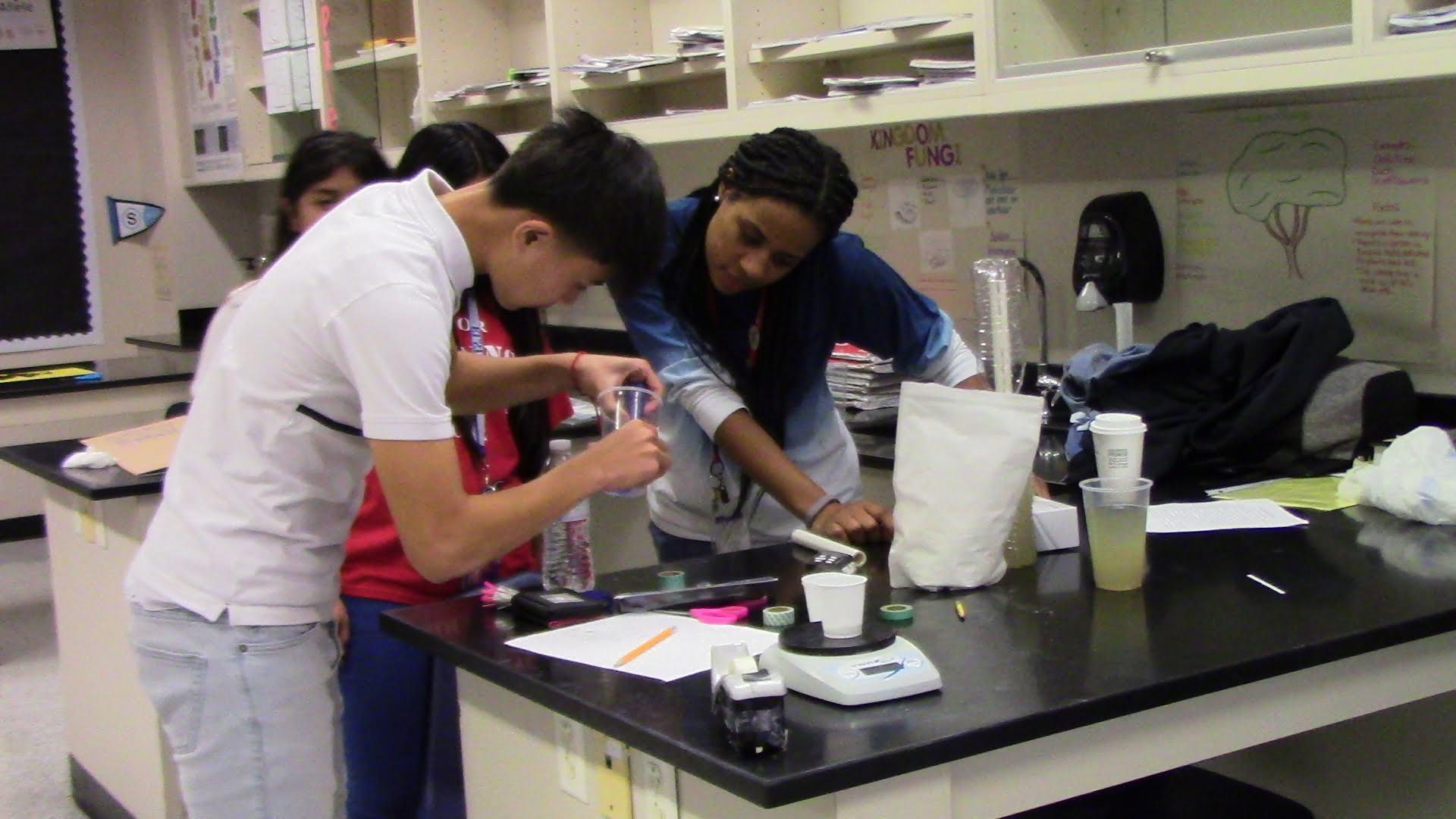
When I first began teaching, I was surprised by how much and how well teachers collaborate. At the International Academy, I am a member of a cross-curricular team that creates project-based learning curriculum using science to solve world issues. Along with the engineering challenge, I worked with this team of core subject teachers to plan lessons to help students become aware of local and global water issues.
In their social studies and English classes, students developed their perspectives and recognized the perspectives of others. In math and science, students took action and learned how to communicate their ideas, findings and research to an audience. In biology, they performed investigative labs to learn how to test water and engineered water filters to understand the engineering design process. In algebra, students learned how to create a scientific poster using Microsoft PowerPoint.
The students then completed their studies by hosting a showcase to present their research to parents and community members. This year has been a great learning experience for both students and teachers.
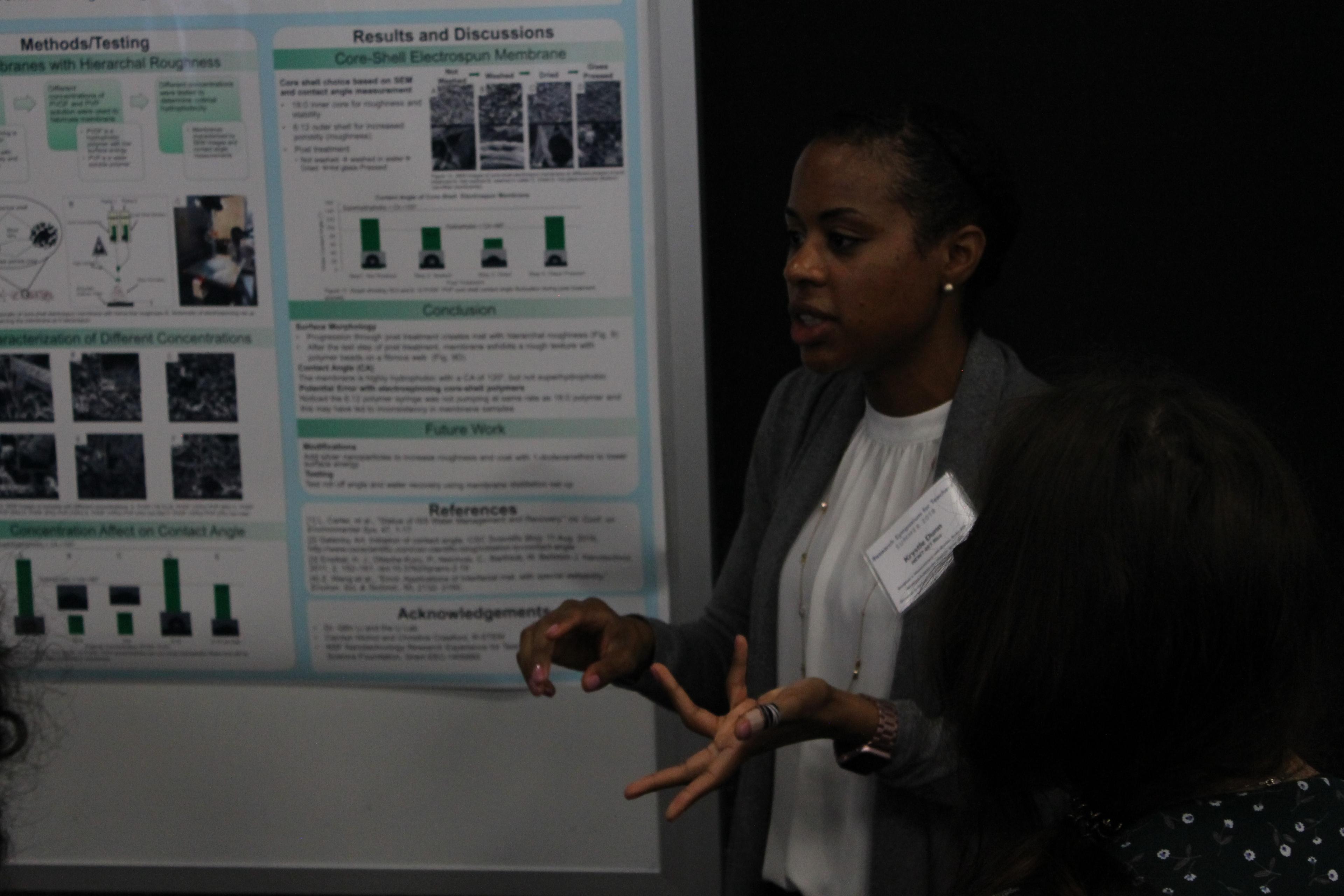
Now that we’ve tackled water scarcity, we plan on keeping the momentum going into the second semester to engineer mobile gardens for clients living in areas without proper access to fresh fruits and vegetables. This will have a large impact on all involved, and students will truly be immersed in the power of science and how it can be used to solve all manner of problems.
My career allows me to continually develop myself as a teacher and scientist. I have participated in college level courses that provide professional development opportunities. I was recently chosen to participate in the 2019-2020 TaLENt Fellowship with Rice University office of STEM engagement, an 18-month project to create objectives and associated metrics for K-12 engineering teaching.
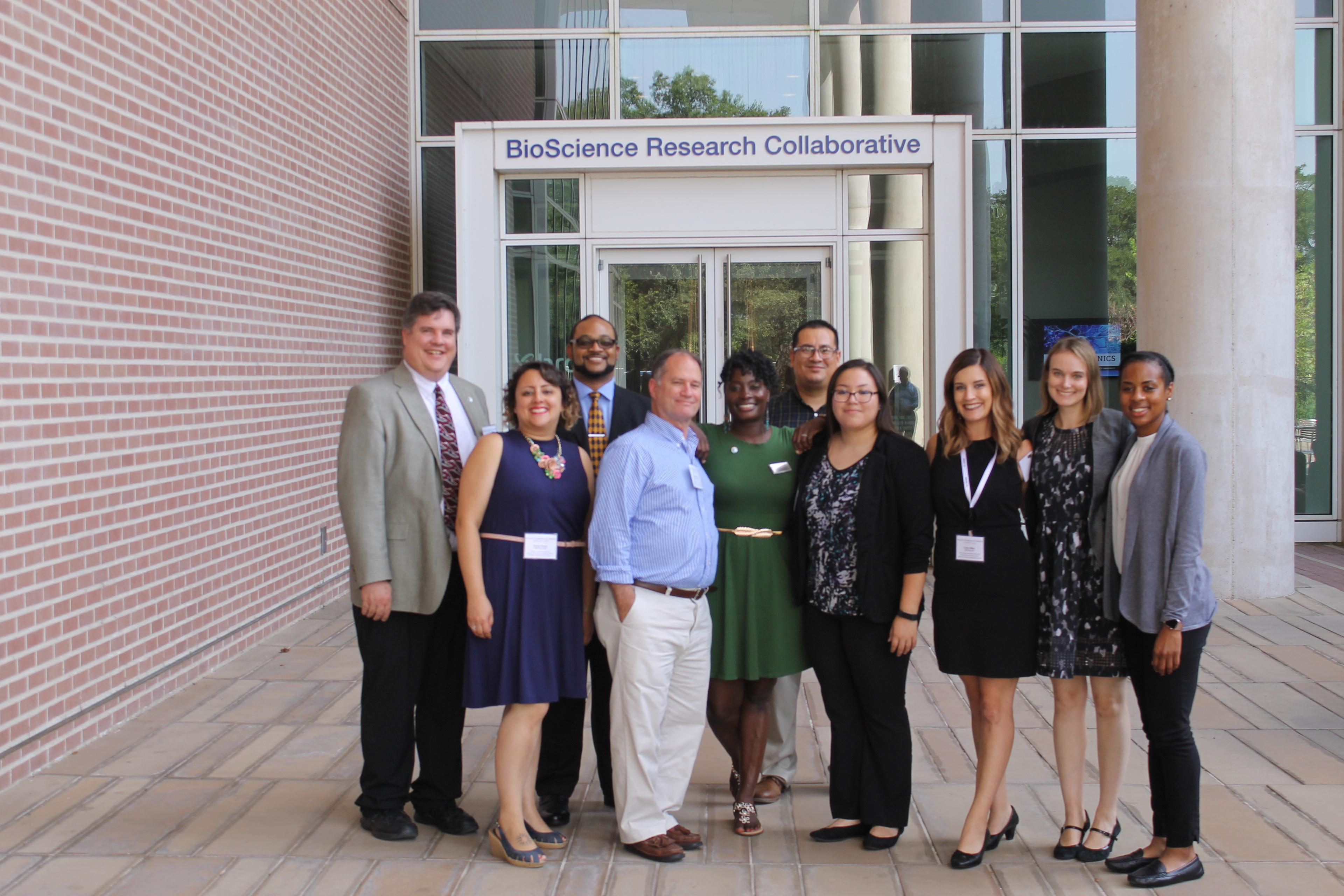
In addition to the fellowship, I will also begin graduate school as a part of a new master’s degree program at the University of Houston. The program focuses on enhancing STEM teacher leadership through equity and advocacy. The knowledge I will gain will benefit my students and positively impact my colleagues as I strive to become a leader in education.
Teaching has taken me so many places and continues to provide me with amazing opportunities to advance my career. I have had the opportunity to attend several conferences and network with teachers from across the United States.Teaching also allows me the chance to continue to learn in unique ways.
I have presented my RET lesson at the Alief STEM/PBL Conference and shared teaching strategies at the Alief Science Conference. Also, as a part of the RET program, I am working on publishing an engineering lesson I created based on my summer research of hydrophobic surfaces.Each of these opportunities has given me a chance to collaborate with colleagues and receive feedback on STEM lessons.
The fields of education, science and technology are constantly changing, and as a teacher it is important that I understand how. I constantly encourage my students to think and ask questions and work to deepen my own understanding of how to get students to identify and solve problems. I have the daily opportunity to engage students in topics that may lead them to a career in science and research, or other fields that use science and engineering to solve everyday problems.
We can apply ourselves to these big problems and come up with big solutions. Especially if we are willing to work together and keep learning.
Teachers like Krystle collaborate on projects that improve communities and the lives of their students. And they do it while exploring their own passions and interests. Are you ready to join a team of educators and put your interests to work?